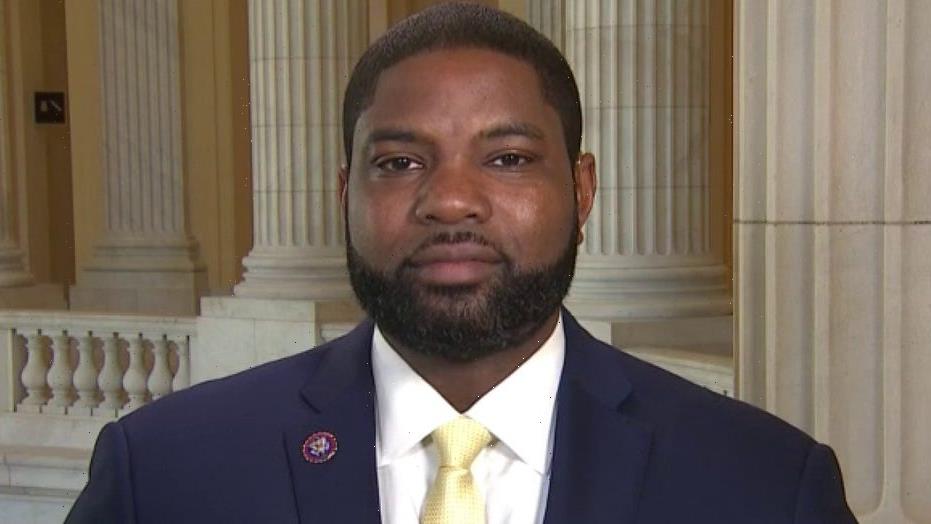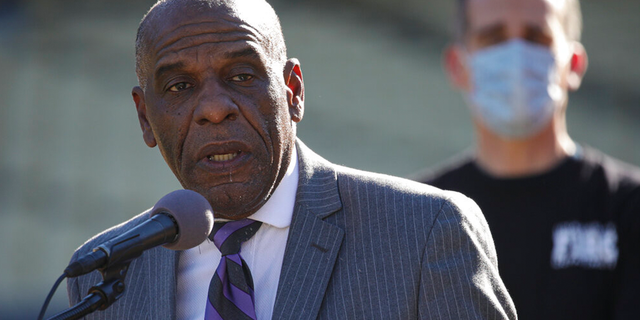Rep. Byron Donalds: House Dems’ slavery reparations bill is ‘the wrong road’ to go down
Rep. Byron Donalds, R-Fla., reacts on ‘Fox & Friends’ to a House panel advancing a slavery reparation bill.
A California task force to study reparations for Black Americans who descended from slaves held its first meeting Tuesday, launching a two-year process that organizers hope will compensate for the federal government’s inaction on the issue.
The nine-member task force, appointed by Democratic Gov. Gavin Newsom, is made up of the descendants of slaves including legislative leaders, prominent lawyers and academics.
FILE: State Sen. Steven Bradford, D-Gardena, addresses a press conference at Dodger Stadium in Los Angeles.
(Los Angeles Times via AP)
“I’m so thankful to my ancestors, who survived so much trauma, so much pain, so much tragedy, so much brutality so that I could live,” said Lisa Holder, a civil rights attorney in Los Angeles. “And I am ready to fight to deliver them — our ancestors — justice.”
Tuesday’s meeting of the first state reparations committee in the U.S. came as President Joe Biden commemorated the 100th anniversary of the Tulsa race massacre, where hundreds of Black people were murdered by a white mob in what was then a thriving African-American community. It also comes just over a year after George Floyd, a Black man, was murdered by a white police officer in Minnesota.
California Secretary of State Shirley Weber, who as a state assemblywoman authored the state legislation creating the task force, noted the opportunity to right a historic wrong that continues today.
“Your task is to determine the depth of the harm, and the ways in which we are to repair that harm,” said Weber, whose parents were sharecroppers forced to leave the South.
Critics have argued that California did not have slaves as in other states and should not have to study reparations— or pay for it. But Weber said the state is an economic powerhouse that can point the way for a federal government that has been unable to address the issue. It would not replace any reparations agreed to by the federal government.
Members of the task force said Black Americans have heard all their lives that they need to improve themselves yet have been held back by racism and discriminatory laws that prevented them from getting conventional bank loans and purchasing homes.
“We have lost more than we have ever taken from this country. We have given more than has ever been given to us,” task force member and state Sen. Steven Bradford said.
A federal slavery reparations bill, commonly referred to as H.R. 40, has languished in Congress since it was first introduced in 1989. It passed out of the House Judiciary Committee in April, but it faces steep odds.
The task force’s duties include summarizing discrimination against Black people in law, and in the private and public sectors; calculating compensation and educating the public on its findings, and crafting an apology.
The Associated Press contributed to this report.
Source: Read Full Article








